-------------
Following the end of the Egyptian War, Ethiopia was filled with outrage against their King. The war had fallen far short of its goals, and too many young men had died in the Battle of Memphis. Many were simply angry that Ethiopia had fought its first war after 1000 years of peace and prosperity.
King Hooray refused to step down from his throne in Aksum. However, he knew that his mistakes had diminished the strength of Ethiopia. So, he relinquished most of his power back to the Eleven Chieftains, who quickly and eagerly restored The Council. The Chieftains did not restore the old Democracy, though, but instead gathered the country's power and influence into their own hands and set up a Republic-style government with The Council as the land's sole authority.
A century of peace lasted following the end of the war and the establishment of the Republic. It was not to last, however. Egypt made open threats against Ethiopia, demanding the return of Thebes and Heliopolis. The Council refused.
In 1640 AD, Egypt decided to take back Thebes and Heliopolis by force. Their Knights struck quickly and without warning.
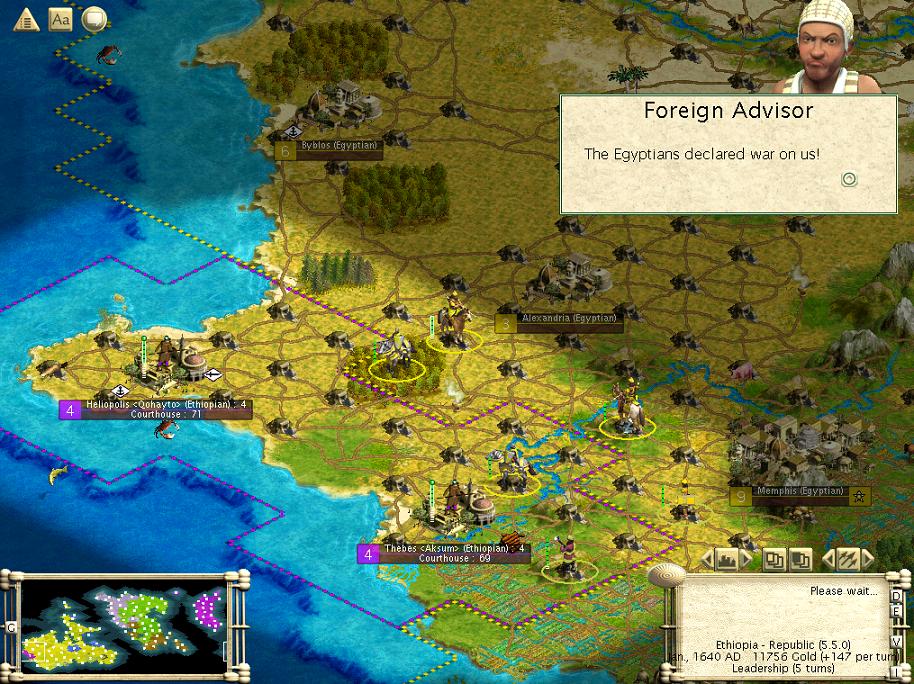
The defenses of the cities barely held out against the initial attack. But they knew that they wouldn't last long against the mighty armies of Egypt...
The Council panicked. They were not prepared for another war, and even if they had been they knew nothing about waging an effective war.
At this time, King Hooray had gone into seclusion. Leaving the affairs of state to The Council, he retreated to the Forbidden Palace in Kyoto and spent his days there planning for when he might restore the glory of Ethiopia.
One day the Chieftains interrupted King Hooray's solitude and demanded that he help them resolve the situation with Egypt. He told them that it would be impossible to hold on to Thebes and Heliopolis, and that it would be best abandon the cities and evacuate the troops that were stationed there.
This was not an acceptable solution to The Council. They wanted to punish Egypt for this war that had been forced on them, so they devised a more cunning plan. They did decide to evacuate the armies and abandon the cities. However, before doing so, they made an agreement with the Republic of Germany. The agreement was that Germany would take control of Thebes and Heliopolis, thus keeping them out of Egypt's hands. The thinking was that Egypt would not dare start another war with Germany while it was still at war with Ethiopia.
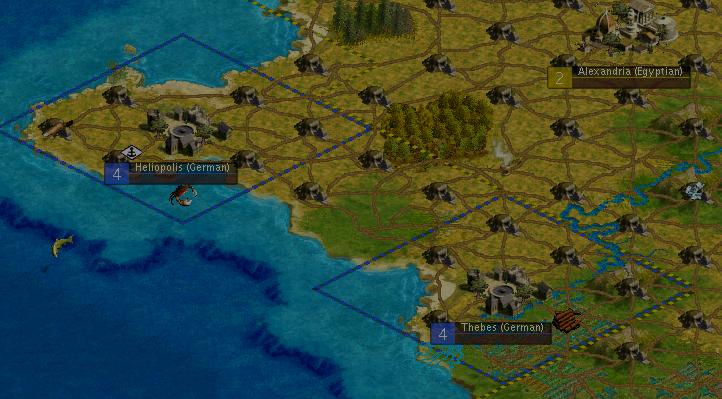
For a while the plan worked. Egypt couldn't afford a war with Germany.
The war between Egypt and Ethiopia lasted for several years, with very few battles fought on either side, and even those battles were on the sea. Ethiopia was the premier naval power of the world, and thus won nearly every battle.
Some degree of prosperity returned to Ethiopia after the war. The most significant event during this time was the foundation of a great trading company in Aksum that expanded Ethiopia's economic power greatly.
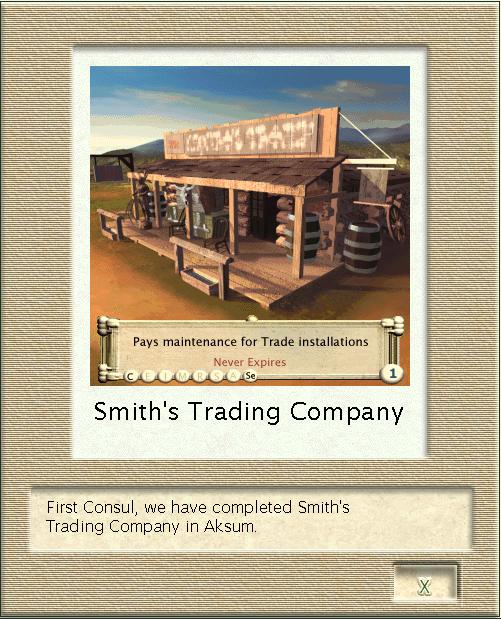
Advances were made in commerce and science. New industries using the latest technology began appearing in every town. Before long, Ethiopia entered into a new era of industrialization.
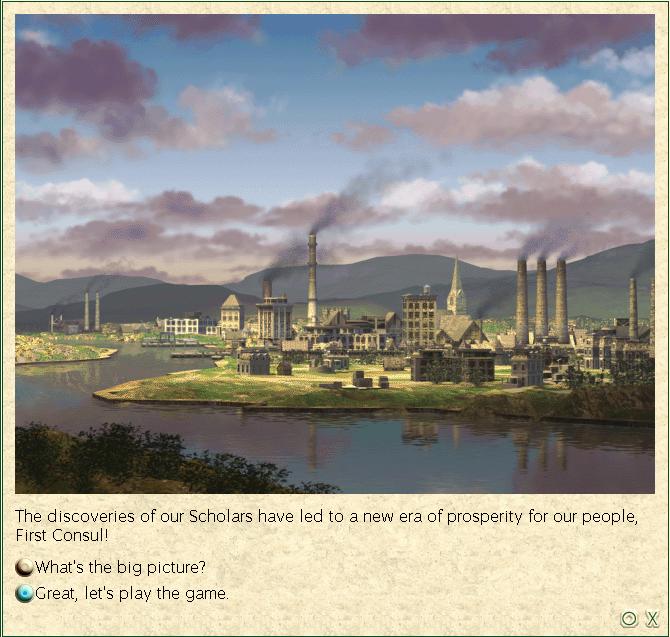
While events were going well in Ethiopia, the Eastern and Western Worlds were torn by several more wars. In the Western World, Persia had begun a massive invasion of Russia and it seemed as if Russia would collapse at any moment. More worrisome was Egypt's declaration of war against the Inca and the Germans in the Eastern World. The Council allocated money and supplies to the governments of Inca and Germany, but it was too little too late.
Egypt seized its cities of Thebes and Heliopolis quickly, as well as several other German cities. And, in the year 1708 AD, they succeeded in wiping out the Incans entirely.
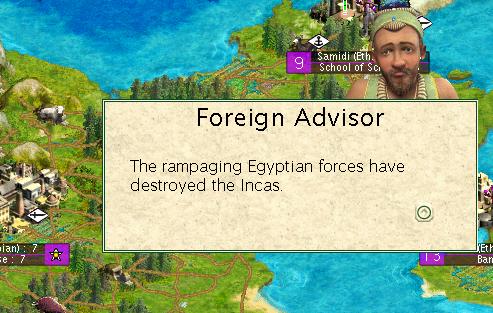
Ethiopia shuddered in fear at the might of Egypt. Now the entire Eastern World was ruled by a single nation. Egypt was easily three times the size of all Ethiopia now. The Council, unsure of what to do, began losing its grip over the country. Rebellions began to spring up everywhere. The people were tired of the inefficient way that The Council ruled.
King Hooray saw his opportunity to retake power. Gathering the armies of Clan Aksum and Kyoto, he suppressed the rebellions, and removed the Chieftains from power. Within five years, he once again claimed his throne in Aksum. This time, however, the people refused to accept King Hooray's rule. They had begun to develop notions of basic freedoms that belonged to everyone regardless of whether they were peasants or merchants or kings. They demanded that King Hooray adopt an official Constitution that guaranteed basic rights and freedoms to the people. After much debating and negotiations, King Hooray accepted their demands and allowed a Constitution to be drafted. Ethiopia officially became a Constitutional Monarchy.
The Council was also restored, but with more limited powers, and it would no longer be controlled by the Chieftains but by elected representatives.
At this time, King Hooray wondered how he could strengthen Ethiopia. Looking to the West, he developed a plan. For the past several centuries, the Western World had been torn by war. However, the three powers of Persia, Siam, and Russia were all of equal strength. No gains or losses were made by any sides, except for a few distant border cities which changed hands many times.
Persia war against Russia changed that dynamic. They had finally won some decisive victories and were pushing south into the heart of Russia.
King Hooray plotted to take advantage of the situation. Russia would not last another two years against Persia. But, why allow Persia to take all of Russia for itself? Why shouldn't Ethiopia declare war on Russia, and prevent the Persians from capturing all of it? Russia was doomed anyway, King Hooray decided, but it presented an opportunity for Ethiopia to gain new glory.
Obtaining permission from The Council, King Hooray declared war on the Republic of Russia in 1725 AD. The chosen invasion point was Crimea Island in the far south.
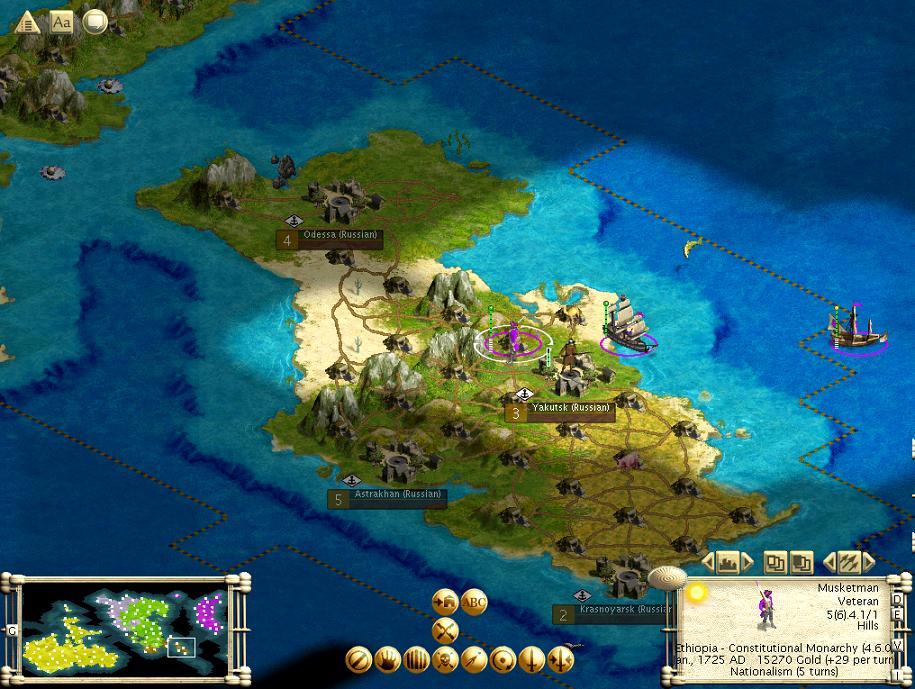
The war was quick and decisive. The cities of Crimea Island fell with little resistance. Ethiopia then turned its forces to attack the Russian mainland. They captured the cities of Minsk and Vladivstok on Russia's eastern peninsula.
The inevitable happened shortly thereafter when Persia captured the last remnant of Russia.
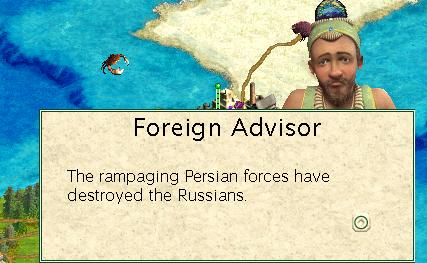
With Russia destroyed, Ethiopia began to consolidate its gains.
King Hooray distributed control of the Russian territories in this manner:
Clan Aksum would control Odessa.
Clan Matara would control Minsk.
Clan Zeila would control Yakutsk.
Clan Qohayto would control Astrakhan.
Clan Samidi would control Vladivostok.
Clan Tekondo would control Krasnoyarsk.
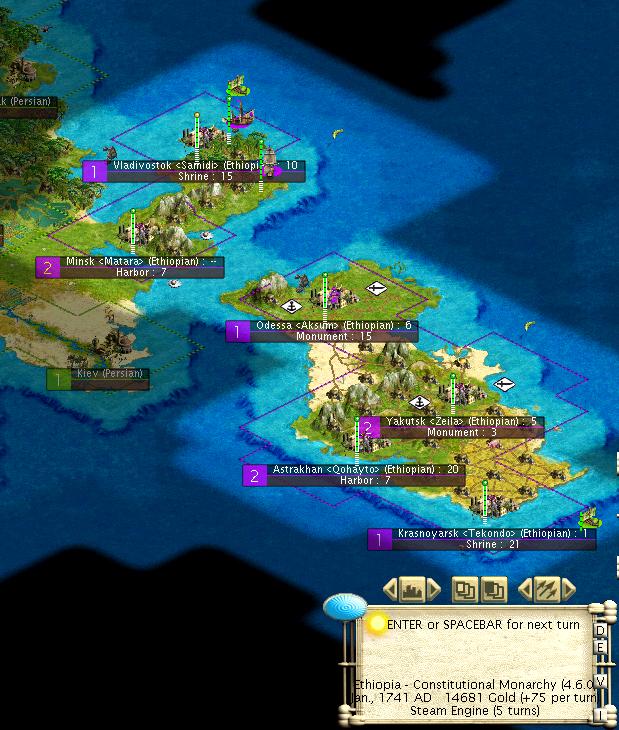
King Hooray also established a Summer Palace in Odessa in order to better control the Crimean Territories.
Ethiopia's armies had redeemed themselves with the victory over Russia. Sure, it had been a war of aggression, but it was also one of liberation. Persia was a mighty Empire with a cruel emperor who would have enslaved the Russian peoples. The inhabitants of Crimea were saved from the fate, and enjoyed greater freedoms under Ethiopia's Constitution than they had under the rule of Russia.
So, some good came about as a result of the war. More importantly, the armies of Ethiopia regained their confidence and felt ready to take on Egypt once again if it became necessary.
------------
Notes: Switching to Aboslute Monarchy during the first Egyptian War was a bit of a mistake. It completely killed my economy. I switched to Republic after the war to make up for it. Upon entering the Industrial Age I had a choice between Federal Republic and Constitutional Monarchy. I chose the latter because it had a few improvements and wonders which could reduce war weariness.
The second Egypt War caught me off guard. I think gifting the cities to Germany was a very underhanded thing to do, but I was going to lose the cities anyway. Egypt now is the most powerful nation in the world. In fact, Ethiopia is only a distant third to Egypt and Persia. I hope to correct this soon.
The Russian War was blatant aggression, but I had to do it. I needed to increase Ethiopia's strength somehow. Besides, Persia was on the verge of taking it all anyway. No sense in letting the AI get away with everything.
I got an MGL in the battle of Odessa. I used him to rush the Summer Palace.
I also got an SGL in these turns, but didn't feel it worth mentioning. I used him to rush some small wonder, I think.



 If you cannot wait until Colonial Marines, you may skip this part and make a slow land invasion.
If you cannot wait until Colonial Marines, you may skip this part and make a slow land invasion.